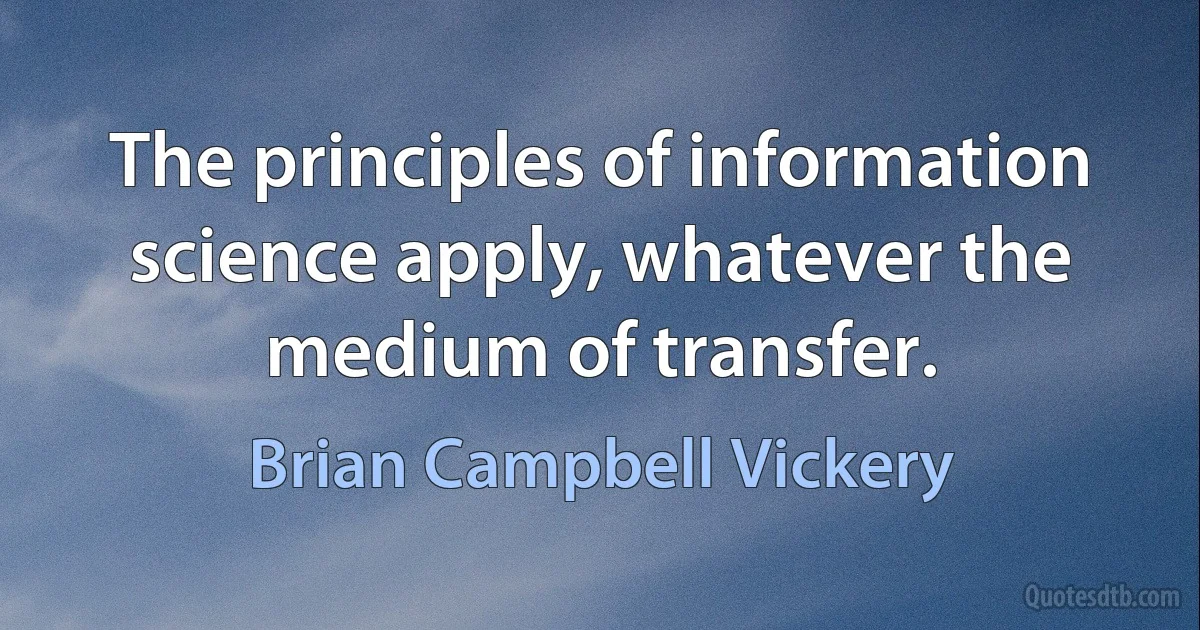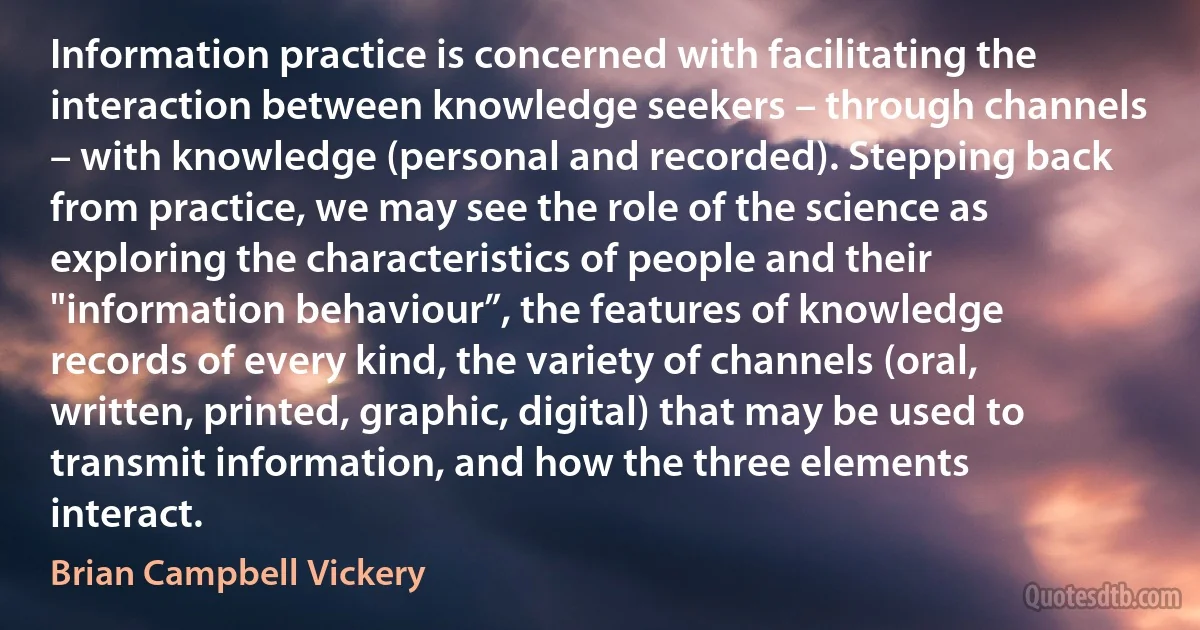Brian Campbell Vickery quotes - page 3
Mass communications analysts concentrate on "who sends what information, for what purposes, through what channels, to which people, with what effect”. The information profession is more interested in "who seeks what information, for what purposes, through what channels, from which people and sources, with what success”.

Brian Campbell Vickery
Only in a very static profession can one be trained to slot in immediately to an available job, and our profession is far from static. It is more beneficial for the students to give them a generalised grounding in a wide variety of professional activities and concerns, so that they will have some background knowledge for no matter what job is first available. For those who seek it, our subject also has its cultural value, which can contribute to a general education.

Brian Campbell Vickery
Information systems, at any level of complexity above that of speech, necessarily involve technologies such as printing, telecommunications, or computers. However, to information science technical potentialities and constraints are of importance mainly in that they affect the social relations concerned.

Brian Campbell Vickery
The preface to the first edition of this book... shows that in 1958 the classification ideas in it were felt to controversial, needing to be championed. A few years before, the had issued a memorandum proclaiming "the need for a faceted classification as the basis of all methods of information retrieval'. As part-author of this memorandum, I must now judge the claim to have been too bold, even brash.

Brian Campbell Vickery
An information system is an organisation of people, materials and machines that serves to facilitate the transfer of information from one person to another. Its function is social: to aid human communication. If we take this to mean all reception of signals by the human senses (sight, sound, small, touch, taste,...)- then communication is an incessant and essential accompaniment of all human activity. If we restrict the meaning of signals to flowing between people, much of the daily life of most of us is occupied by such interpersonal acts.

Brian Campbell Vickery
The classification of subject matter may be carried out for all sort of special purposes - to arrange books on shelves, to group inventions in patents, to classify the raw materials, intermediates and products of importance to a particular manufacturer, and so on. All such arrangements have their particular uses and their particular problems.

Brian Campbell Vickery
I would pinpoint 1958 as a special time in my career. I had for some years been working with the Classification Research Group in London, and in 1957 we had held a small but successful conference to which Jesse Shera, Gene Garfield and others had come from the USA. In 1958 I published my first book, Classification and Indexing in Science, and attended the International Conference on Scientific Information in Washington. This was my first visit to the USA - I flew in a US Army transport plane with, John O'Connor and Desmond Bernal. The experience of attending the conference, and of other visits I paid at that time, led to the writing of my second book, On Retrieval System Theory...

Brian Campbell Vickery

![... it is most important – particularly in an immature field like information science - to accept that all modes of study and all analytical methods can make useful contributions, and not to denigrate [qualitative] models as "just description”. (Brian Campbell Vickery)](https://cdn.quotesdtb.com/img/quotes_images_webp/51/brian-campbell-vickery-description-963851.webp)

